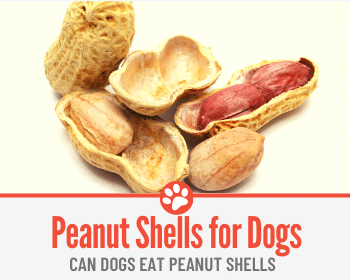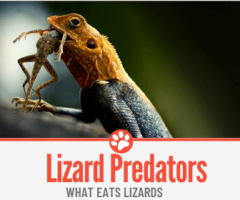 Help, my dog ate peanut shells, what to do!
Help, my dog ate peanut shells, what to do!
If your dog has consumed a lot of peanut shells you should watch it closely for a day or two. If there was a problem the dog might show signs of discomfort, which may be an indication you need to take care of your dog.
Depending on how much your dog has consumed, it can cause some minor discomfort to a really serious issue. In case of a symptoms hinting towards a serious issue, you should consult a vet.
If the dog has consumed too much peanut shells, there is a possibility that the substance may have accumulated in the abdomen which can be a matter of concern.
Can Dogs Eat Peanut Shells?
Yes, It’s okay for your dog to eat peanut shells, for one time or in small amounts. They are not toxic to dogs, and your dog will be just fine but make sure this doesn’t happen again. Don’t let your dog eat peanut shells again or eat too much of it because it is believed that the residues of fertilizer and pesticide during irrigation are absorbed by the peanut shells.
Therefore, they cannot be removed by washing and even roasting. This means a bite or two probably won’t be harmful, but over time the remains could possibly build up in your dog’s body and cause harm. Even the risk of suffering an allergic reaction because of these residues cannot be ruled out.
Peanut shells are a source of fiber, but they can also cause serious disruption in the digestive functioning as they would often gather in the gastrointestinal tract. This buildup of foreign material causes stomach distress, at the same time accumulating matter that cannot pass through the intestines.
This collection of any material consumed by the animal that gets stuck in the abdomen, in extreme cases, may require surgery for removal.
Moreover, the texture of the peanut shells in itself is a serious problem as they can rub against the dog’s digestive tract, causing abrasion and even worst, causing infection.
Are peanut shells harmful to dogs?
There are many ways that peanut shells can be harmful to dogs. Firstly, the nuts, as whole, can be hard for the animal to chew and hence can be a choking hazard.
The shells may not necessarily be deadly, but they can cause minor disturbance if they were contaminated with pesticides.
Thirdly, the hard part of the shell can scratch against the soft inner side of the digestive pipe on its way down which can cause discomfort to your dog and might also result in minor infection. And finally, the shells may pile up in the animal’s abdomen and form residues that can only be removed by operation.
Are peanut shells good for dogs?
Peanut shells are a source of natural fiber which can be good for your dog. However, the composition of peanuts differs based on their varieties as well as the manufacturing settings. Also, other than dietary fiber, peanut shells offer no nutritional value to dogs or to any other animal.
Peanut shells normally consist of sixty percent fiber. Other than that there is twenty five percent cellulose, eight percent water, six percent crude protein, two percent ash and just one percent fat.
So, if we keep in mind the possible negative effects of peanut shells, it is perhaps not worthy to risk your dog’s health.
Can dogs eat whole peanuts with shells?
Dogs can eat anything, and they will eat anything. However, as your pet they are your responsibility, you have to make them used to healthy habits.
Dogs can eat whole peanuts with shells, but you are advised not to allow your dog to make that a habit. Peanut shell is rough and abrasive as the dog doesn’t chew on it too well, hence, it can cause physical damage to the digestive tract.
Except for the abrasion caused by the shells peanuts eaten with shells may, however, not effect the dog’s digestive system as much as flavoured or salted peanuts will. Flavoured or salted peanuts can cause disturbance to the dog’s gastrointestinal system.
So, whenever you want to feed your dog with peanuts, whether they are raw, boiled or roasted, make sure the shell is removed first.
Also, peanuts are a source of fat and dogs that consume too much fat regularly are at increased risk of upset stomach and also suffering from pancreatitis.
Side effects of eating peanut shells
There are quite a few side effects of the peanut shells if they are eaten by human beings or other animals. Peanut shells can sometimes be toxic. Peanut shells are a natural source of fiber and they are used in dog food for the same reason.
However, it was recently found out that the peanut shells can also be a source of Aflatoxin B1 which is known to be very toxic and can even be deadly for your dog if ingested.
Moreover, recently a top dog specialty diet that was served to highly-trained working dogs was found responsible for their death.
Later when the matter was investigated the findings revealed that the company had been using peanut shells as a source of fiber in their products. Unfortunately, some of the shells were contaminated with fungus that produced a deadly toxin.
Also I read a story of a forty years old physician who had complained about abdominal pain, loose bowls, as well as anal discomfort when defecating. All these problems were associated with his daily ingesting of fifteen to thirty whole peanuts, including the peanut shells. Thorough assessment revealed that there was inflammation in his digestive system.
Later when he discontinued whole peanut ingestion the conditions normalized. In this patient, undigested peanut shells were the main reason for the problem mainly because of mechanical abrasion of the digestive tract.
What other animals eat peanut shells?
A lot of animals, including pets like feeding on peanuts but none of them are known to consume it with their shells. It comes naturally to them to just open the shell and feed on the heart. Whole peanuts, even those in the shell are quite popular among the larger birds such as jays, crows, magpies, ravens, woodpeckers, and grackles. Similarly, some reptiles that have very sharp teeth can sometimes feed on peanuts.
Mice such as rodents, rats, hamsters that have naturally strong teeth and they like to nibble on peanut shells. Squirrels also feed on peanuts.
Monkeys are also known for feeding on peanuts. However, none of the wild animals or birds have been seen consuming the shells.
There is a quite popular myth saying elephants love peanut shells or that there are peanut loving elephants. However, that myth has been proven wrong. Elephants don’t even eat peanut shells, let alone loving them.
Human beings eat peanut shells and may even get addicted to them which can be dangerous for a number of reasons. Some people also use them as an alternative for salt.

